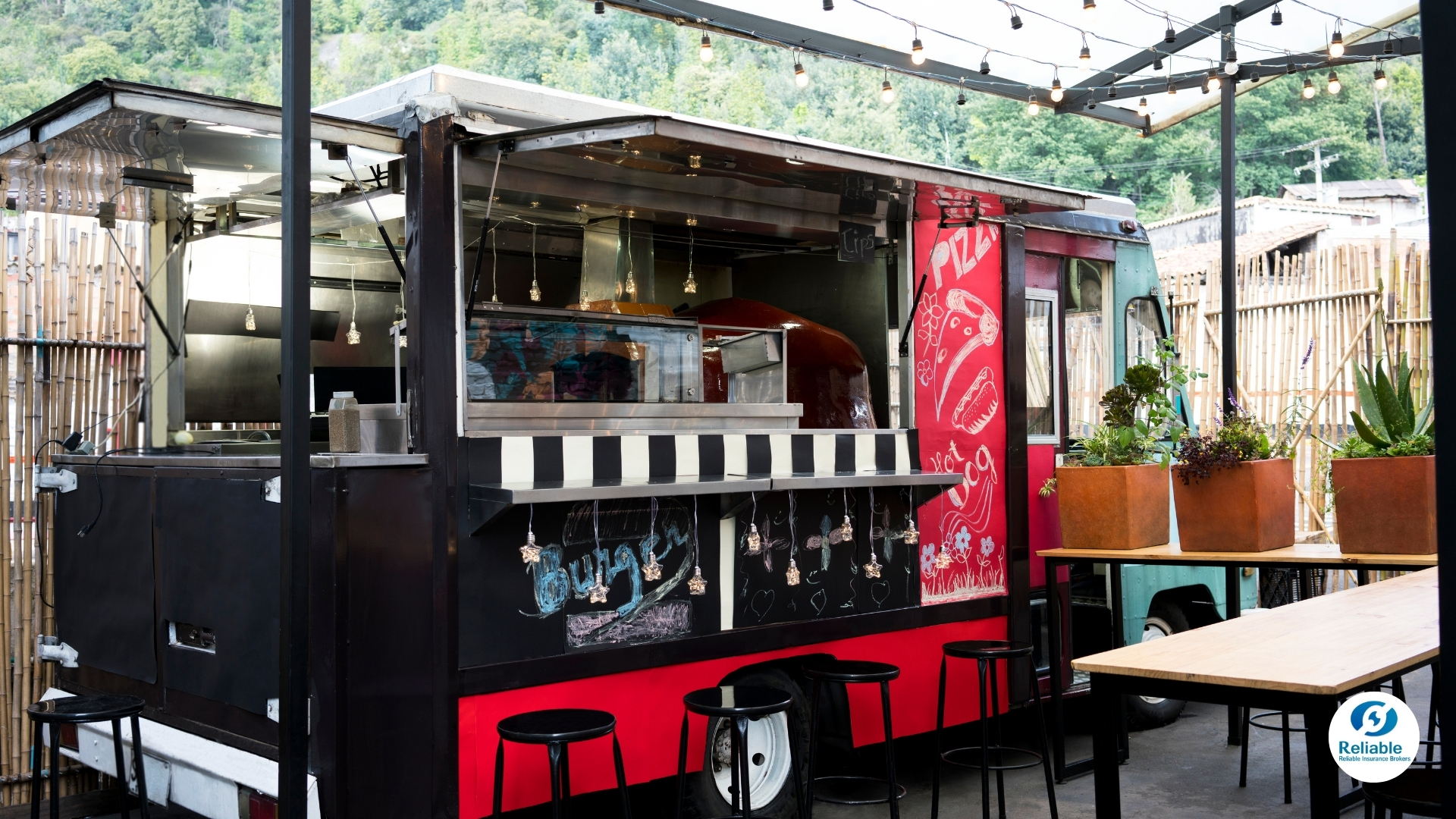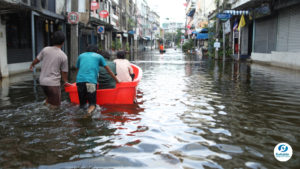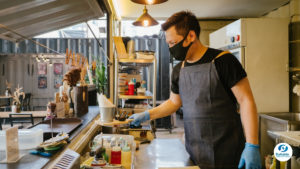Operating a food cart, kiosk, or small food business in Metro Manila offers exciting opportunities and prime access to diverse customers, whether stationed in a busy mall, bustling outdoor market, or popular event space. However, these advantages come with specific risks, and food vendors often encounter issues that can disrupt daily operations. By identifying the key safety, operational, financial, and security challenges, small food business owners can strategically prepare to protect both their assets and their brand reputation.
Key Risks for Small Food Businesses
Understanding the different challenges in your industry means being able to prepare to face them. We may only see the daily routines of running a food cart or kiosk, but managing food safety, equipment, finances, and security can add layers of complexity to your operations.
1. Food Safety Risks
Food safety is a top priority in high-traffic environments, including outdoor settings, where hygiene standards may be harder to control consistently.
- Health Incidents from Food: Serving food in public places requires strict attention to hygiene. If a customer becomes ill after eating your product, it can lead to complaints or even legal claims, impacting both reputation and finances.
- Issues with Food Quality and Safety: Small spaces and busy environments make it easy for food quality to be compromised. Accidental contamination or mislabeling can lead to customer health risks, which may result in financial strain and loss of customer trust.
2. Property and Equipment
Protecting essential physical assets, like equipment and inventory, is critical for uninterrupted operations.
- Breakdowns in Equipment: Essential equipment like refrigerators and cooking appliances undergo heavy use and can suddenly stop working. Repairing or replacing them can be costly, and every delay in fixing equipment means potential lost sales and wasted inventory.
- Power Interruptions: Food carts and kiosks often rely on shared or mobile power sources, which can be unreliable. Power outages or surges can damage equipment, requiring costly repairs and leading to delays in service.
- Theft and Vandalism: Portable setups in public spaces are vulnerable to theft or vandalism, especially after hours. Lost or damaged inventory and equipment result in costly replacements and interruptions to business.
3. Operational Risks
Running a small food business brings unique operational challenges that can disrupt day-to-day activities.
- Customer Accidents: Busy setups in public areas increase the chances of customer accidents, like slips or falls. If a customer is injured, medical costs or claims can quickly add up, impacting your business’s finances.
- Digital Payment Threats: Businesses using digital payments face risks from cyber threats, such as data breaches or unauthorized access. These incidents can lead to financial losses, legal issues, and a damaged reputation.
- Employee Accidents: Employees working in small, high-activity spaces with hot equipment are at greater risk of injury. This can result in medical expenses and disrupt operations if key team members are unable to work.
4. Legal and Financial Risks
Small food businesses face financial vulnerabilities, especially when legal or operational disruptions arise.
- Expenses from Legal Actions: Customer incidents, property damage, or advertising disputes can lead to legal claims. Expenses such as investigation costs, legal fees, settlement costs, and potential penalties can add up quickly, straining finances and affecting business stability.
- Loss of Income Due to Operational Disruptions: Natural disasters, such as typhoons, floods, and earthquakes, are common in Metro Manila and can force businesses to close temporarily. Other causes, like fires, equipment failures, or flooding, can also halt operations unexpectedly, impacting revenue and stretching cash flow during recovery.
Keeping Your Food Business Safe and Prepared
Running a food cart or kiosk in a busy city like Metro Manila brings plenty of rewards but also some very real risks. Basic measures, like staying on top of hygiene, checking equipment, and training your staff, can help avoid a lot of headaches. But sometimes, even with your best efforts, things happen—equipment breaks down, accidents occur, and unexpected costs pile up.
This is where insurance comes in as a reliable safety net. Having the right coverage means you’re ready to handle not only the everyday costs but also the big, unexpected expenses that could otherwise disrupt your business. By combining practical safety steps with insurance tailored to cover your unique needs, you can run your food business with more confidence, knowing that you’re prepared for both routine challenges and surprise disruptions.
Solutions for Managing Risks in Small Food Businesses
To protect a food cart, kiosk, or small food business against industry-specific challenges, understanding the right solutions is as essential as knowing the risks. The right combination of smart precautions and solid insurance coverage gives you a safety net you can count on, so you’re ready to manage costs, avoid financial setbacks, and keep your food business running smoothly, no matter what comes your way.
Below are the business insurance options we offer to small food businesses and their coverage that addresses key risks in your operations.
General Liability Insurance
Protects your food business against common risks and claims arising from incidents that happen around your business. Coverage includes:
- Medical expenses and other costs for accidental injuries or death related to your business operations
- Repair expenses for damages to nearby property due to your business activities
- Legal fees and other related costs for claims filed against your business due to incidents involving customers or property
This insurance ensures you’re not left with financial burdens from everyday incidents, so you can focus on running your business with confidence. Learn more: General Liability Insurance Guide
Product Liability Insurance
Protects your food business from claims related to harm caused by your products after they’re sold. Coverage includes:
- Expenses for health issues experienced by customers, such as illness, allergic reactions, or other health issues due to contamination, or mislabeling
- Costs related to product defects, such as issues with packaging or product quality that cause harm to customers
This insurance shields your business from product-related claims, allowing you to address customer health and safety concerns without financial strain. Learn more: Product Liability Insurance Guide
Commercial All-Risk Property Insurance
Provides essential protection for your business’s physical assets and financial stability. Coverage includes:
- Repair or replacement costs for equipment and inventory when damaged by events like fire, explosions, vandalism, or natural disasters such as typhoons or earthquakes
- Losses from theft or robbery, including cash, inventory, or essential equipment
- Loss of income during temporary business closures due to covered events, including natural disasters, fire, equipment breakdowns, or other insured incidents that disrupt normal operations
This insurance helps your business stay resilient against property-related setbacks, keeping your operations on track. Learn More: Property Insurance Guide
Cyber Liability Insurance
safeguards your business from financial impacts related to cyber threats, especially important if you handle digital payments or customer data. Coverage includes:
- Expenses related to data breaches or unauthorized access, including legal fees, fines, and customer notifications
- Financial losses from cyber extortion, including ransomware payments and associated costs
- Loss of income during business interruptions caused by cyber incidents that disrupt operations
With this insurance, you’re prepared to manage online risks, keeping both your operations and reputation protected. Learn more: Cyber Liability Insurance Guide
Safeguard Your Business Today
Running a food cart, kiosk, or small food business in a busy setting like Metro Manila can come with a unique set of risks. By identifying these potential issues and addressing them with tailored insurance solutions, you can protect your business, your assets, and your reputation. Don’t let unexpected setbacks disrupt your success—explore your insurance options today to keep your business resilient and ready for growth.
Contact Information for Inquiries and Support
Should you have any questions or require further assistance in applying for Business Insurance, please reach out:
- Call: +63 2 8631 9285 to 86
- Mobile: +63 917 138 5120
- Email: info@reliable-insurance.ph
- Messenger: m.me/reliable.insurancebrokersph
Note
The coverage details provided in this guide are for informational purposes only and are subject to change. Reliable Insurance Brokers advises all clients to request a detailed proposal and thoroughly read and understand their insurance policy. Coverage terms and conditions may be updated or modified by our partner insurance companies, which may supersede the information contained in this guide. Additionally, because our offerings can be custom-fitted to your specific needs, the details may vary from what is stated in this article. For the most accurate and up-to-date coverage details, and to understand how different providers might affect your policy, please contact us directly or refer to your policy documentation.
Sources:
- Pinoy Negosyo. (2024). Disadvantages of Operating a Food Cart Business
- Hernandez, Alexander & Escolano, Victor James & Juanatas, Ronaldo & Elvambuena, Ma. (2022). Mobile Payments Adoption in Small and Medium Retail Enterprises: An Exploratory Study in Manila, Philippines. 10.1109/ICBIR54589.2022.9786389.
- ANSI Philippines. (2023). 4 Big Challenges in the Food Retail Industry and How to Beat Them
- Maya. (2024). 6 Common Risks Small Business Owners Need to Be Aware Of










